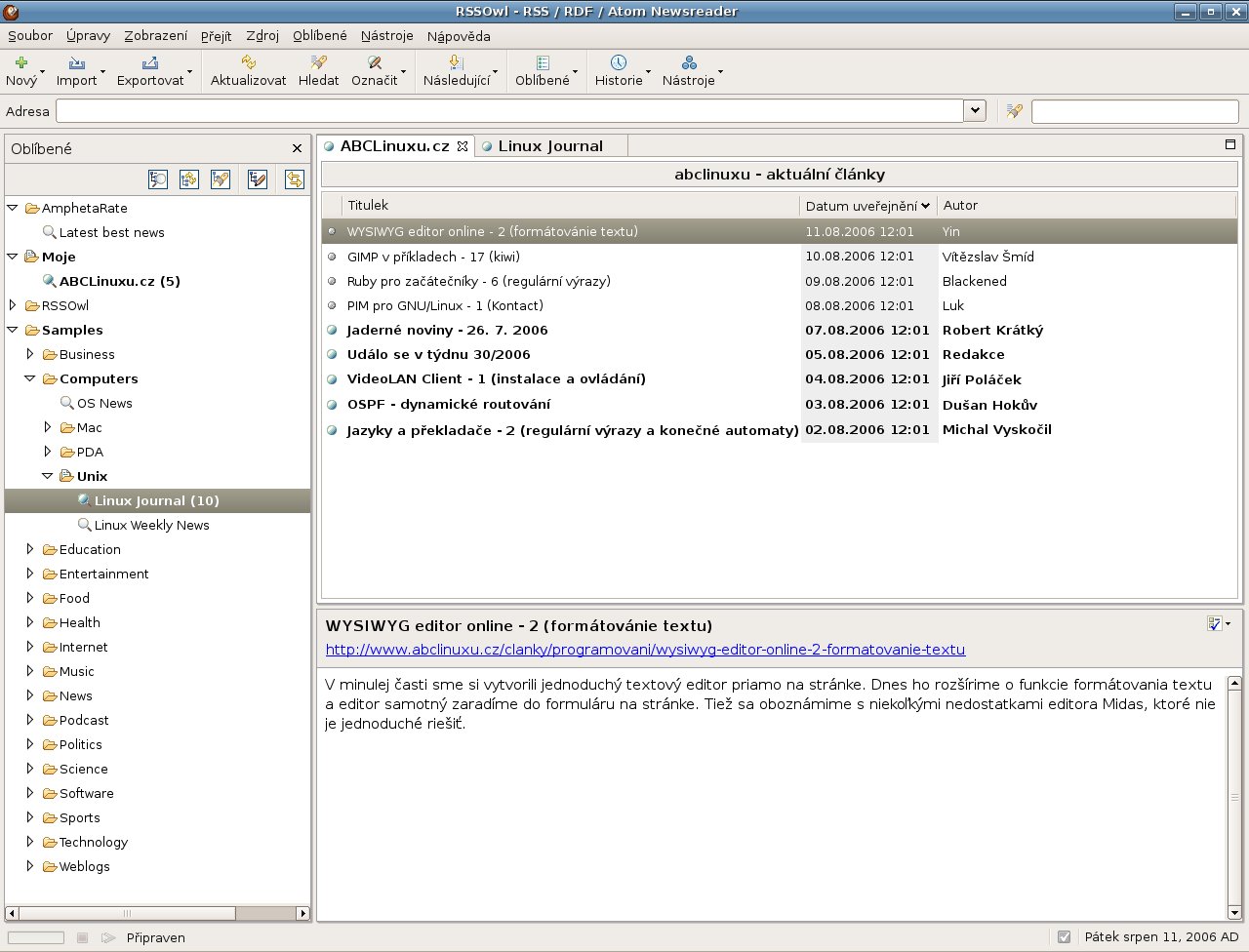
- #Export rssowl feeds to fedora mac os x#
- #Export rssowl feeds to fedora install#
- #Export rssowl feeds to fedora password#
- #Export rssowl feeds to fedora download#
There are available commercial services like Relakks from our friends at The Pirate Bay. People have suggested in the comments that using a VPN(a virtual encrypted private network) is the only way to can't track you.
Avoid AT&T Internet service at all costs, they are known to work very close to the different security agencies and anti P2P organizations. You get a new IP address this way(someone in the comments said this only slows them down if they are after you they WILL find you no matter what let's just say you won't be transferring 30 GB on an IP but on 10 different IPs, who do you think they'll track down first?). If you have Dynamic IP it's a good idea to restart your router every couple of days.  For your general privacy enable WPA2 with TKIP security on your router, and also change the default admin password. Anyone will be able to connect and you can't be liable(someone in the comments said this won't work in the US anymore). If your wireless router supports this option, create a separate SSID and set it to Open. If you have Windows Vista and a TPM chip, enable Bitlocker encryption on Mac OS X you can use FileVault. It's easy to use, just follow the help files if you get stuck. True Crypt is a "free open source disk encryption utility for Windows Vista/XP, Mac OS X and Linux".
For your general privacy enable WPA2 with TKIP security on your router, and also change the default admin password. Anyone will be able to connect and you can't be liable(someone in the comments said this won't work in the US anymore). If your wireless router supports this option, create a separate SSID and set it to Open. If you have Windows Vista and a TPM chip, enable Bitlocker encryption on Mac OS X you can use FileVault. It's easy to use, just follow the help files if you get stuck. True Crypt is a "free open source disk encryption utility for Windows Vista/XP, Mac OS X and Linux". Create a separate partition(recommended if you don't want full drive encryption) for your downloads and install True Crypt.Enable full drive encryption if possible.Don't worry about NSA using their supercomputers to crack the encryption (as some alarmists say).

Having everything encrypted is your advantage. If your IP pops up as 'interesting' they will pay you a visit.
PeerGuardian is Open Source and works with Windows XP. The blacklist updates frequently and is very effective in my tests. Peer Guardian works by blocking all connections from blacklisted IP's known to be Government or Anti P2P. To block all connections from government, anti peer 2 peer organizations download Peer Guardian. Let's make it clear that they do in fact track private trackers, but in my tests I found less 'hostile' connections from Media Defender and the likes. Usually anti p2p organization focus on open and very popular trackers such as ThePirateBay. Check the net for those who don't keep logs. (Optional) Try to get an invite to a private bittorent tracker. Force outgoing encryption, enable port randomization(optional), disable "Allow legacy connections". Use popular and acknowledged clients ( uTorrent, Transmission open source). 
Always try to use the latest version of your bittorrent client.The rest of the tips are just to minimize the risk of them coming after you. That's why the only true defense is encrypting all your hard disk, if and when they come, they won't be able to find any illegal stuff. The IP must be visible in order for the data packets to reach destination. The way anti p2p guys find you is by entering the swarm themselves and logging the IP's, which are visible even if you enable encryption. If you can't remember it, write it somewhere and put it in a SAFE, HIDDEN location.
Make sure you have a strong password for your login/encryption, a password like 'iruletheworld' won't do. The result? No one will come knocking your door, or if they do, they won't have any proof. By taking these easy steps, you can protect your privacy from the prying eyes of RIAA/MPAA and the gov't. 
If you live in the United States, France, UK, you may be thinking that getting music and movies from ThePirateBay isn't such a great idea anymore.








 0 kommentar(er)
0 kommentar(er)
